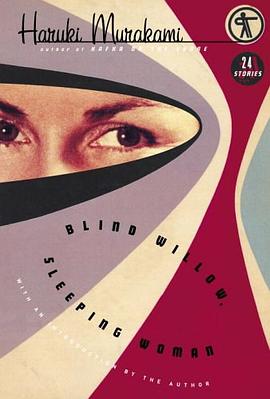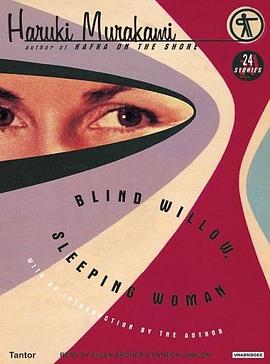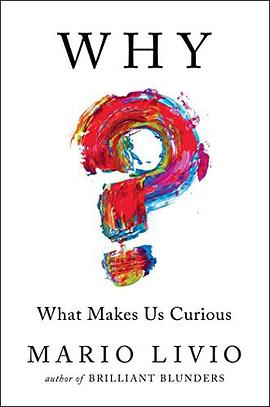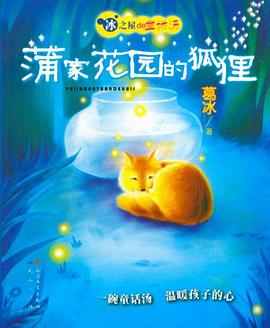

Book Description
Following the best-selling triumph of Kafka on the Shore—“daringly original,” wrote Steven Moore in The Washington Post Book World, “and compulsively readable”—comes a collection that generously expresses Murakami’s mastery. From the surreal to the mundane, these stories exhibit his ability to transform the full range of human experience in ways that are instructive, surprising, and relentlessly entertaining. As Richard Eder has written in the Los Angeles Times Book Review, “He addresses the fantastic and the natural, each with the same mix of gravity and lightness.”
Here are animated crows, a criminal monkey, and an iceman, as well as the dreams that shape us and the things we might wish for. Whether during a chance reunion in Italy, a romantic exile in Greece, a holiday in Hawaii, or in the grip of everyday life, Murakami’s characters confront grievous loss, or sexuality, or the glow of a firefly, or the impossible distances between those who ought to be the closest of all.
“While anyone can tell a story that resembles a dream,” Laura Miller wrote in The New York Times Book Review, “it’s the rare artist, like this one, who can make us feel that we are dreaming it ourselves”—a feat performed anew twenty-four times in this career-spanning book.
From Publishers Weekly
[Signature]Reviewed by Lily Tuck One of my favorite Haruki Murakami stories is "The Elephant Vanishes"—part of an earlier collection published in 1991—in which the narrator watches as an elephant in a zoo grows smaller and smaller until finally the elephant disappears. No explanation is given, there is no resolution, the vanished elephant remains a mystery at the same time that the narrator's life is changed forever.Blind Willow, Sleeping Woman, Murakami's new collection of 25 stories, many of which have appeared in the New Yorker and other publications, also describes these epiphanic instances. In the title story, a character who is half deaf, alludes to a John Ford movie, Fort Apache, in which John Wayne tells the newly arrived colonel that if he actually saw some Indians on his way to the fort that means there weren't any. Everything is a bit off—including of course the blind willow trees whose pollen carry flies that burrow inside a sleeping woman's ears—as in a dream, where explanations are always lacking but where interpretations are plentiful. In "Mirror," the narrator sees someone who appears to be both himself and not himself in a mirror and then finds out the mirror does not exist; the disaffected woman—a lot of Murakami's characters are handicapped or incapacitated in some physical way—in "The Shinagawa Monkey," loses her own name; in "Man-Eating Cats," the narrator's girlfriend disappears and as he searches for her finds that "with each step I took, I felt myself sinking deeper into a quicksand where my identity vanished." Murakami's stories are difficult to describe and one should, I think, resist attempts to overanalyze them. Their beauty lies in their ephemeral and incantatory qualities and in his uncanny ability to tap into a sort of collective unconscious. In addition, a part of Murakami's genius is that he uses images as plot points, going from image to image, like in the marvelous story "Airplane," where, while making love, the narrator imagines strings hanging from the ceiling and how each one might open up a different possibility—good and bad. It is clear that Murakami is well acquainted with the teachings of Buddhism, western philosophies, Jungian theory; he has a deep knowledge of music and, also, I have been told, is a dedicated, strong swimmer. In his stories, he roams freely and convincingly through all these elements (and no doubt many more) without differentiating to create a world where cats talk and elephants disappear. In the introduction to this collection, Murakami writes how, for him, writing a novel is a challenge and how writing short stories is a joy—these stories are a joy for his readers as well.Lily Tuck's most recent novel, The News from Paraguay, won the 2004 National Book Award.
From Bookmarks Magazine
"Everything I write is a strange tale," Haruki Murakami says in his preface to this collection. Admittedly, his fusion of Eastern and Western elements of story and reality to create a uniquely surreal landscape of human and otherworldly experiences may be a little too strange for some readers. In addition, he asks more questions than he answers about his protagonists and their unusual situations. Yet those accustomed to his weird ways will find a lot to enjoy here, including many of his most popular New Yorker pieces. While it's clear that many of the stories are sketches made in preparation for the grand artistry of his novels, most, if not all, stand very well on their own.
From Booklist
This well-honored and avidly read Japanese writer, who is the author, most recently, of the novel Kafka on the Shore (2005), extols the virtues of, as well as admits to a fondness for, the short story form ("a joy") in his introduction to this selection of 25 of his short works. Readers who fear the short story, particularly by writers with a high literary reputation, need to set hesitations aside here. Murakami is an open-armed, hospitable short story writer who avoids the obscurantism often caused by the concision that the form requires. His stories have an oral tone, a greatly appealing and embracing personal narrative voice. "Yep, that's life all right," says the narrator of "A Perfect Day for Kangaroos," on the subject of finding a suitable day--what with inclement weather and health issues--to visit the zoo. The sheer perfection of that story is counterpoised by "Tony Takitani," a longer and more elaborate but no less jolting story about a man's life, which begins and ends in loneliness. The title story is a low-key but poignant memoir-type narrative about a young man's caring for his hearing-impaired cousin, and the pleasure of "The Mirror" arises from the feel it gives of an Edith Wharton ghost story. The beauty of the author's prose style seals every story's sharp delivery.
Brad Hooper
Book Dimension
length: (cm)19.7 width:(cm)12.8
具體描述
讀後感
評分
評分
評分
評分
用戶評價
(上圖藉書)讀完全篇又匆匆去翻村上春樹在前言裏自己寫下的介紹,說"writing novels is like planting a forest, then writing short stories is more like planting a garden"。讀他的短篇常覺得在感受一種意境,離奇有時不帶邏輯的情節安排,讀完卻對要錶達的內涵不知所以-如同一團雲伸手去抓卻抓不住實質什麼。在前兩篇<盲柳與睡女>和<生日女郎>中感受尤其明顯。但也正因如此想一篇篇看下去因為不知道前方有何意想不到的離奇。另外也足見村上春樹是個老文藝,書中故事背景涉及多個旅遊國傢意大利土耳其希臘夏威夷,涉及多領域藝術傢從古典樂到爵士到流行竟然還看到提到B'z。讀完感覺有點腦洞大開有些故事有不錯的想像力。
评分A few highlights: *New York Mining Disaster, Man-Eating Cats, Chance Traveller, Crabs
评分A few highlights: *New York Mining Disaster, Man-Eating Cats, Chance Traveller, Crabs
评分Engrossing . . . Although Murakami's style and deadpan humor are wonderfully distinctive, his emotional territory is more familiar--remorse, unresolved confusion, sudden epiphanies--though heightened by the surreal . . . For all its peculiarity, Planet Murakami offers a recognisable landscape of our fears.
评分A few highlights: *New York Mining Disaster, Man-Eating Cats, Chance Traveller, Crabs
相關圖書
本站所有內容均為互聯網搜索引擎提供的公開搜索信息,本站不存儲任何數據與內容,任何內容與數據均與本站無關,如有需要請聯繫相關搜索引擎包括但不限於百度,google,bing,sogou 等
© 2025 qciss.net All Rights Reserved. 小哈圖書下載中心 版权所有




















